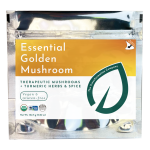Medicinal mushrooms have a rich history of promoting health, with varieties like psilocybin mushrooms and turkey tail mushrooms recognized for their significant health benefits. The maitake mushroom is equally remarkable, celebrated for its delicious taste, nutrient density, and impressive health advantages. In recent times, it has attracted global attention as researchers continue to reveal its numerous health benefits, largely attributed to D-fraction, a compound in maitake that has shown therapeutic effects for cancer patients. Their medicinal qualities, versatility, and flavor have led to increased popularity worldwide.
Understanding Maitake Mushrooms
Maitake mushrooms, also known as hen of the woods or Grifola frondosa, are edible fungi native to China and also cultivated in Japan and North America. They grow in clusters at the bases of trees like maple, oak, or elm and can reach over 100 pounds, earning the nickname “king of the mushrooms.” The term “maitake” translates to “dancing mushroom” in Japanese, reflecting the joy people felt upon finding it due to its potent healing powers. These mushrooms are a staple in Japanese cuisine and are becoming increasingly popular globally.
With a frilly appearance, delicate texture, and earthy taste, maitake mushrooms are versatile in cooking, used in a variety of dishes. They are also adaptogens, containing properties that help restore and balance the body for improved health.
Health Benefits of Maitake Mushrooms
- Balances Blood Sugar: High blood sugar levels can lead to diabetes and other health issues. Maitake mushrooms may help regulate blood sugar when included in a balanced diet. Animal studies have shown that Grifola frondosa improves glucose tolerance and lowers blood glucose levels.
- Potential Cancer Cell Inhibition: Although research is in the early stages, some studies suggest that maitake mushrooms may possess cancer-fighting properties. Extracts from these mushrooms have been seen to block tumor growth in mice and suppress the growth of breast cancer cells in vitro.
- Lowers Cholesterol Levels: Maintaining healthy cholesterol is crucial for heart health. Some animal studies suggest that maitake mushrooms can reduce cholesterol levels, though more research is needed.
- Boosts Immune Function: Maitake mushrooms contain beta-glucan, which supports the immune system. Studies have shown that adding Grifola frondosa to a diet can enhance immune response, especially when combined with shiitake mushrooms.
- Promotes Fertility: Maitake mushrooms might be beneficial for conditions like polycystic ovarian syndrome (PCOS) and infertility. A study found that maitake extract induced ovulation in a significant percentage of participants with PCOS.
- Reduces Blood Pressure: Regular consumption of maitake can help manage blood pressure. Research indicates that Grifola frondosa extract can decrease hypertension and lower triglycerides and cholesterol in animal models.
Nutrition Facts
Maitake mushrooms are low in calories but rich in protein, fiber, B vitamins like niacin and riboflavin, and immune-boosting beta-glucan. They also contain trace amounts of other nutrients, contributing to their health benefits.
Comparing Maitake to Other Mushrooms
Reishi and shiitake mushrooms are also known for their health benefits, with reishi potentially aiding against cancer and cardiovascular risks, and shiitake combating obesity and inflammation. Both maitake and shiitake mushrooms are used in cooking, with maitake being lower in calories and higher in protein, fiber, niacin, and riboflavin compared to shiitake.
How to Use Maitake Mushrooms
Available in late summer to early fall, maitake mushrooms can be found at the base of certain trees. They should be firm and clean before use. Outside of grocery stores, they can be sourced from specialty stores or online retailers, and also in supplement form. Maitake mushrooms have a strong, earthy flavor and can be prepared in various ways, including roasting, sautéing, or as an ingredient in diverse dishes.
Risks and Side Effects
While generally safe for most, some individuals may experience allergic reactions to maitake mushrooms. If symptoms like hives or swelling occur, use should be discontinued and medical advice sought. Those on medication for blood glucose, blood pressure, or cholesterol should consult healthcare providers before consuming maitake. Pregnant or breastfeeding individuals should also exercise caution due to the lack of research in these groups.
Conclusion
Grifola frondosa, known for its medicinal properties, supports blood glucose balance, immune function, cholesterol management, blood pressure reduction, and fertility. It is nutrient-dense and versatile in culinary uses. Maitake mushrooms can be easily incorporated into diets and offer a variety of health benefits.









